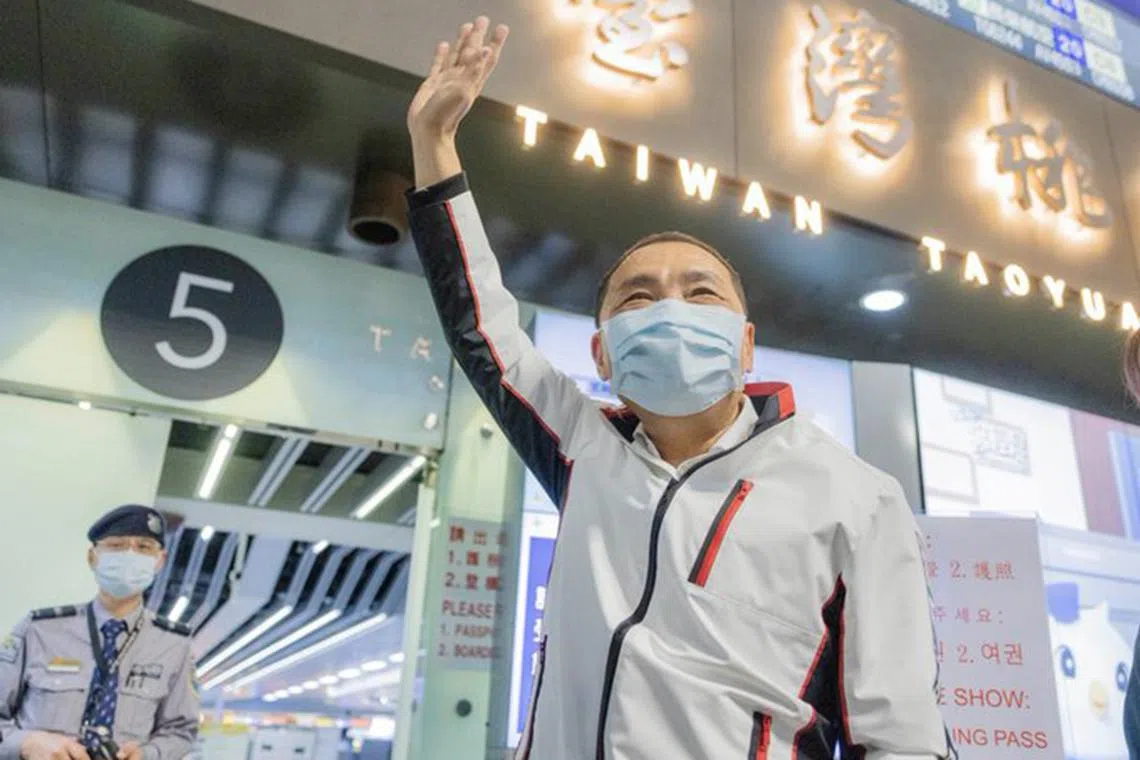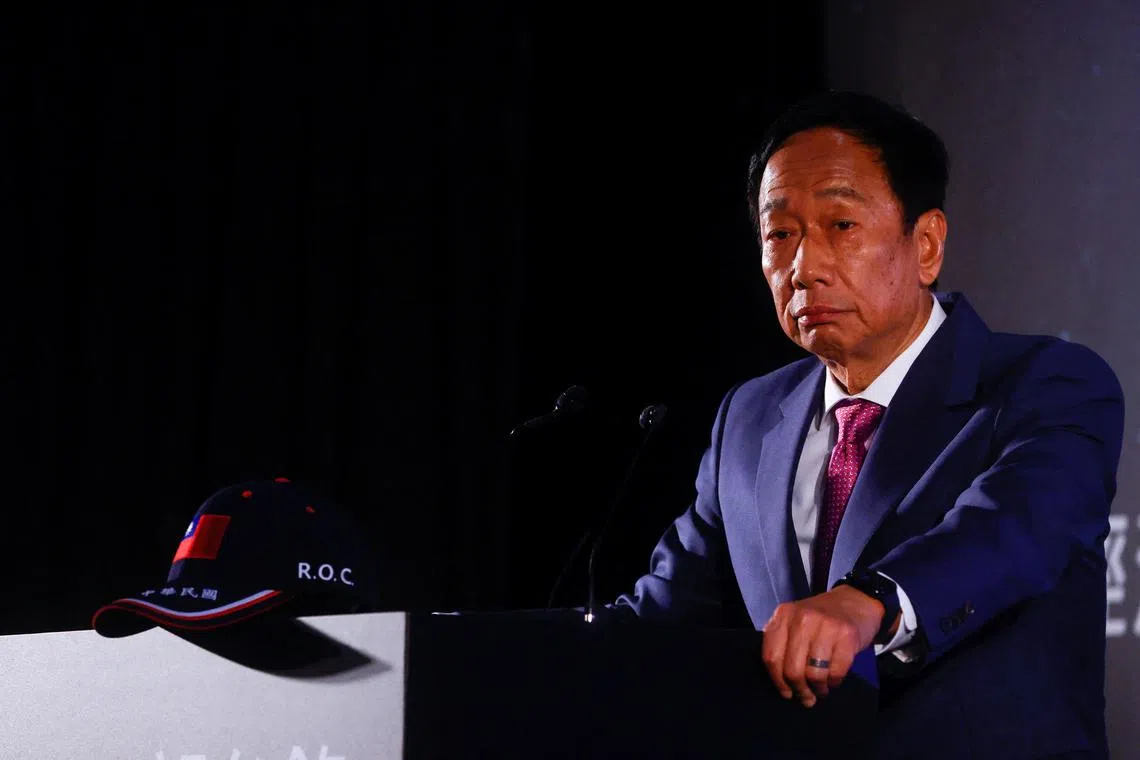Taiwan’s opposition Kuomintang to pick Hou as presidential candidate over Foxconn founder Gou
Sign up now: Get ST's newsletters delivered to your inbox

New Taipei City Mayor Hou Yu-ih had been seen as more likely to win the nod from the KMT due to his broad popularity and grassroots appeal within the party.
PHOTO: HOU YU-IH/TWITTER
Follow topic:
TAIPEI – Taiwan’s main opposition party is set to nominate New Taipei City Mayor Hou Yu-ih as its candidate for next year’s presidential election, a person familiar with the situation said, as it seeks to wrest back power in a vote crucial to US-China relations.
The Kuomintang (KMT) on Wednesday is set to formally announce Mr Hou as its choice to represent the party in January’s election,
Mr Hou would be taking on Vice-President Lai Ching-te of the ruling Democratic Progressive Party (DPP).
The choice of Mr Hou over Foxconn Technology Group founder Terry Gou, who also sought the nomination, is due to his strength in opinion polls and broader support among lawmakers and local government leaders, the person said.
In remarks to reporters on Tuesday, Mr Hou did not directly address the question of whether he would be the nominee, saying that “no matter what the process is, I respect the party’s rhythm and rules”.
KMT spokesman Tony Lin declined to comment. Mr Gou’s office said it won’t comment until there is an official announcement. A spokesman for the New Taipei City government also declined to comment.
The winner of January’s election will be thrust into the centre of a frosty relationship between the world’s two largest economies.
A victory for the DPP would see the US keep a willing partner in its efforts to push back against China, while a win for the KMT – Beijing’s preferred negotiating partner in Taiwan – would likely ensure closer ties between Taipei and the Communist Party-led government in Beijing.
“The DPP is probably still the favourite to maintain the presidency, but after eight years of Tsai Ing-wen’s leadership they are facing serious headwinds,” said Mr Kharis Templeman, a research fellow specialising in Taiwan at the Hoover Institution in California.
“In addition to the hostile cross-strait relationship, there is also a slowing economy, stagnant wages, high housing costs, repeated delays in the transition to renewable energy, water shortages, air pollution, and so forth.”
‘More competitive’
Mr Hou, 65, had been seen as more likely to win the nod from the KMT due to his broad popularity and grassroots appeal within the party. Some 33 per cent of Taiwanese voters favour DPP’s Lai compared with 29.7 per cent for Mr Hou, according to a poll last month by the Taiwanese Public Opinion Foundation.
In a theoretical match-up against the 72-year-old Gou, Mr Lai received an approval rating of 35.1 per cent compared with 26 per cent for the founder of Foxconn, also known as Hon Hai Precision Industry.

Foxconn founder Terry Gou also sought the nomination to represent the Kuomintang in January’s election.
PHOTO: REUTERS
There’s also the likely candidacy of former Taipei city mayor Ko Wen-je, expected to run with the Taiwan People’s Party (TPP).
“A Hou nomination by the KMT will make the 2024 presidential election an even more competitive three-way race between the DPP, KMT, and TPP, and therefore less predictable,” said Mr Russell Hsiao, executive director of the Washington-based Global Taiwan Institute.
Mr Hou had a distinguished, decades-long career in the police force, during which time he rose to become Taiwan’s top cop before switching to politics.
He has served as mayor of Taiwan’s biggest municipality, New Taipei City, for the past five years, winning re-election for another four-year term by a wide margin last year.
Singapore meeting
Still, Mr Hou faces a a dilemma. Declaring his ambition to run for president just months after winning the mayoral election could raise questions about his commitment to his constituency.
Another concern facing Mr Hou is his lack of experience at the national level, particularly in the areas of foreign affairs and national defence.
In an effort to bolster his diplomatic credentials, Hou visited Singapore last month and met Deputy Prime Minister Lawrence Wong.
On the issue of Taiwan’s political status, a crucial matter of contention in every presidential election, Mr Hou has said he opposes Beijing’s “one country, two systems” formulation for bringing the democratic island under its control.
He has also said he opposes Taiwanese independence, stating there is no legal basis for it. Referring to the island by its official name, Mr Hou said recently that the “Republic of China is our country, while Taiwan is our home”.
Polls show a majority of Taiwanese people are happy to maintain the deliberately ambiguous status quo rather than seek unification or independence. Bloomberg

